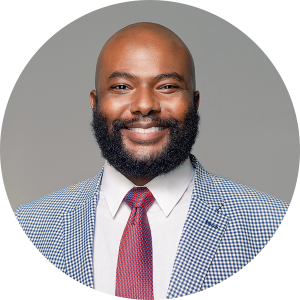Walker Area Community Foundation awards creative, visionary and sensitive grants that address the evolving needs of our nonprofit organizations.
Grants are made for the following charitable purposes:
Arts and Humanities
Children and Youth
Education
Elder Care
Environment
Health & Medicine
Recreation
Social Welfare
We do not make grants for:
Individuals
Religious Organizations for religious purposes
Dinners
Balls or other Ticketed Events
Political Purposes
Lobbying Activities
Replacement of Government Grants or Funding
Endowments or Other Discretionary Pools
Requests from public school systems must come from the superintendent's office and must include all needs of the system in one application. If the request is for an individual school, it must be for a pilot project that, if successful, would be duplicated in other schools in the system.
Requests from large organizations with many branches or departments (e.g. colleges, universities,) must come through the development or president's office and have the approval of the head of that office.
Capital funding will not be granted if the property is not owned by the organization. With the application, organizations must submit proof of ownership including title opinion or an informational title commitment to show that the organization has clear title to the property, with no restrictions. Include deed and property description.
All applicants must provide financial statements with their application including a Balance Sheet, Income Statement, and Statement of Cash Flow.
Audit Requirements:
- Organizations with annual revenue of $1 million or more are required to have an annual audit beginning Fall 2022.
- Organizations with annual revenue of $500,000 up to $1 million are required to have an annual review beginning Fall 2022.
- Organizations with annual revenue of $250,000 up to $500,000 are required to have a compilation with notes beginning Fall 2022.
- Organizations with annual revenue of $100,000 up to $250,000 are required to have a compilation without notes beginning Fall 2022.
Additionally, any organization requesting funding of $100,000 or more will be required to have an audit beginning Fall 2022.
Proposals
Twice per year, we accept grant proposals from 501(c)(3) organizations. In order to make the greatest impact with the funds available, we prefer requests that address:
- Address a critical community need and get at the root cause of a problem.
- Serve more than just a few people.
- Do not duplicate existing services unless they serve a population not already being served.
- Pilot projects which, if successful, can be expanded to serve a wider population or be duplicated by other organizations.
- Involve collaboration and cooperation with other organizations and agencies
- Include an effective mechanism for measuring the impact of the Foundation’s investment.
- We support organizations that demonstrate the expertise and experience necessary to accomplish their mission, operate under sound financial principles, have a future funding plan and a solid base of community support.
Grant Review
The Foundation has a Grant Review Team that volunteers their time to review and discuss applications with the submitting organization. They visit the applicants to see the daily workings of the organization, as well as to learn more about the program funds are being requested to support. They bring their findings back to the Team as well as to the Component Fund advisors. From the report given and the team discussion that follows, funding recommendations are made to the Foundation Board of Directors for final approval.
Grant Contract
Once awarded a grant, the recipient organization is required to sign a grant contract with the Foundation. The contract communicates that grant funds from the Foundation may only be used on the activities listed in the recipient’s grant proposal. It is also understood that these grant funds will be used in accordance with the proposed / approved budget and timeline and that no substantial variance will be made without the Foundation’s prior approval. Any grant funds not expended for the purposes of the project as outlined in the proposal must be returned to the Foundation, or written approval given to expend funds on a different project.
Grant Follow-up
A written report on the funded project is due in the Foundation’s office nine months after funding is received. The report requests financial data as well as specific information concerning progress towards the stated objectives of the project. If the grant includes multi-year funding, a report is due each year. Future requests for funding are not considered if reports are not submitted on time and/or do not contain the required information.

Morgan Curry
Grants Manager
mcurry@wacf.org
Let's Start a Conversation
Learn how our grant process ensures that every dollar invested in our community is being done responsibly.
